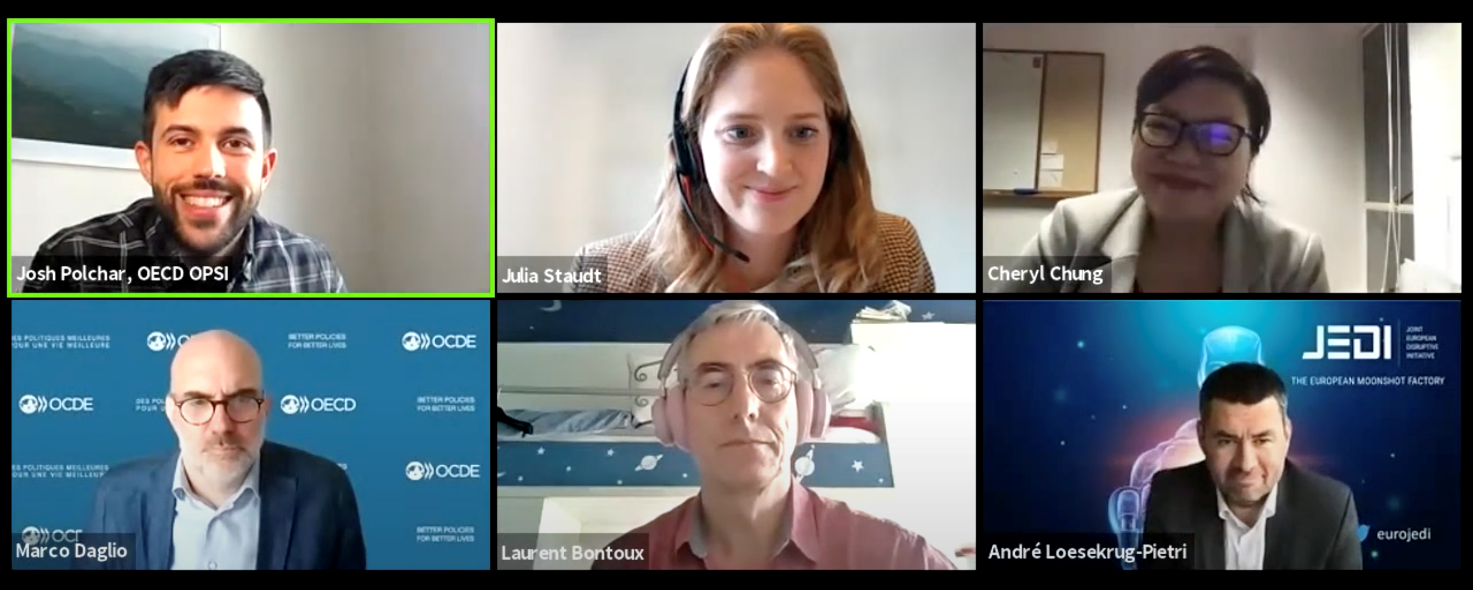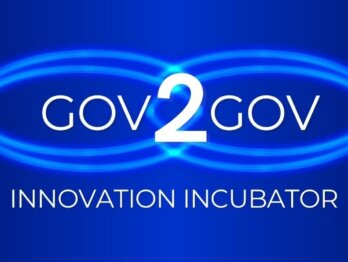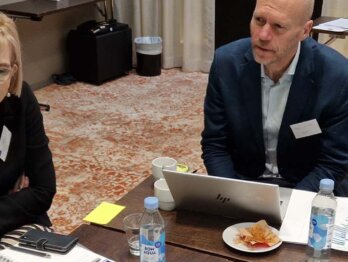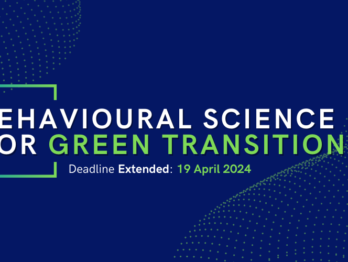Flashforward

What if our minds could move through time as easily as our bodies can move through space? In the movie Arrival (minor spoiler alert!), linguistics professor Dr Louise Banks learns an extraterrestrial language that expresses ideas in a timeless and nonlinear way. Through some science-fiction magic grounded in a grain of truth, Banks gains the ability to perceive time itself differently, and experiences flashes of future moments of great personal and political significance. As her mastery of the language increases, these flashforward moments become increasingly vivid and emotional, culminating in an opportunity to prevent a disaster and change the course of history before it occurs.
Many people and organisations would leap at the opportunity to receive glimpses of the future or even look into it at will. Unfortunately that part of the movie really is totally fictional. The future does not simply present itself in advance, and we don’t have a real working crystal ball. But we do anticipate every day: we get vaccinated to prevent disease, we plan meetings in advance, and governments invest in things like infrastructure and education for future generations. Yet we know we could anticipate and prepare better. The coronavirus pandemic has exposed once again the need for organisations to anticipate disruptions that are hard to predict and complex to deal with. Being as ready as possible to respond and make the best of whatever the future might throw at us can be referred to as “futures fitness” and it something that many organisations need more of.

These are the reflections that inspired the webinar “Where the Future Fits”, organised by the OECD Observatory of Public Sector Innovation (OPSI) as part of our work in the European Commission’s Horizon 2020 programme. Joined by expert panellists Laurent Bontoux of the European Commission’s Joint Research Centre; Cheryl Chung of the Lee Kuan Yew School of Public Policy; and André Loesekrug-Pietri of the Joint European Disruptive Initiative (JEDI), we sought to better understand how organisations try to increase their future fitness today. You can rewatch the recording of the webinar online.

Futures without fear
Looking at how many organisations realise the need to anticipate better, consensus among the experts was that it often happens too late. Laurent evoked the irony of organisations that appoint crisis-response teams with a mandate to explore the future of an issue once it has already become an urgent present concern: “don’t they get it?!” Cheryl noted the significant increase in demand for strategic foresight among many organisations in the wake of the coronavirus pandemic: “the focus now is on preparedness, not whether futures knowledge is right or wrong”. The chairs highlighted that the name Covid-19 actually contains the deadline for analysing the pandemic as a “future issue”: it was in 2019! André noted humans’ limited cognitive and organisational abilities to comprehend exponential changes in sufficient time to take action. The great complexity and unpredictability of the world today can be a source of great anxiety for many of us, and especially for governments: “Governments have the feeling that they are constantly running behind. Anticipatory innovation is a way for policymakers to regain the ability to act despite uncertainty.”
The name Covid-19 actually contains the deadline for analysing the pandemic as a “future issue”: it was in 2019!
In OPSI we have been supporting organisations to handle this anxiety by helping them anticipate better, and by helping them act better by adopting anticipatory innovation practices. We also promote discipline and humility in recognising the limits of governments’ ability to anticipate and act. There is no working crystal ball, but there are two other sources of knowledge that can help: experience and imagination. Experience means learning from the past, and is the essence of things like evidence, “best practices”, and forecasts as a basis for making policy. But all the panellists agreed that experience has its limitations: Cheryl referred to the “myth of best practice” in a world where policies that worked in the past may not work next time around.
When looking at the future, best practice is a myth. In reality, nobody knows. The challenge is: how do you design experiments so you can learn for the future together?
Laurent suggested that forecasts, which often predict the short-term future reasonably well when trends remain stable, give a “false sense of security” because they fail every time there is a disruption. People mistakenly assume that certainty about past data neutralises the uncertainty surrounding future developments. Too few organisations are comfortable admitting that they might not have the answers, or might have some wrong answers. “Uncertainty doesn’t mean it’s necessarily bad, it just means we don’t know. Foresight helps steering towards positive outcomes”, said Laurent
Futures are never factual
That leaves imagination. “What if you’re getting the future wrong?” That is the question all the panellists believe every organisation needs to ask itself regularly, in order to better cope in a world where the future regularly proves all of us wrong. One of the hardest but most valuable parts of studying the future is the process of using imagination to reveal our organisations’ assumptions about how the future could and should look—and then questioning those assumptions. Cheryl noted that this is a question of skills and “organisational habits”. The majority of the webinar participants indicated that their organisation had no regular process which explicitly imagines potential future disruptions. This does not bode well for future crises because, as Cheryl noted, it is important to practice these skills and habits, in order to be proficient in them when they are most needed. André noted that the JEDI Foundation, as an organisation chiefly concerned with disruptions, is unique in this sense since it leverages the collective intelligence of some the best minds out of academia, deeptech startups, and larger organisations; and spends roughly 50% of its time on scanning what could be the “next big things” in the areas of environment, healthcare, digital or space.
Decision teams should be supported by reflection teams
Laurent advocated the concept of “rapid reflection” in addition to “rapid response” in times of crisis in order to revise future expectations and make sure that short-term solutions do not compromise longer-term hopes for the future. Decision teams should be supported by reflection teams. Lastly, Cheryl asserted that the future, like history, is written by the winners. It is important when envisaging futures to consider those affected by big decisions—including the vulnerable, the marginalised, and future generations who do not yet have a voice. This is particularly relevant in the case of climate change, which affects large numbers of people over long periods of time, and usually in a way that is disproportionately harsh on women, children, and people with low incomes.
Fit the future in
The future does not come to us spontaneously in flashforward moments; we have to actively seek it out and shape it. To do that, organisations need to have the right habits, skills, and mindset—and they need to experiment to turn what the learn into action. That all means finding time in the present: you have to fit the future in to be fit in the future! OPSI is supporting governments to do just that through anticipatory innovation. Our reports on building strategic foresight and anticipatory innovation systems in Ireland and Finland expand on this analysis in greater depth, and our upcoming conference Government Beyond Recovery on 18-19 October 2021 will show how we’re putting it into action. You can register now at our conference website. You can also follow the OECD’s work on anticipatory innovation here.












